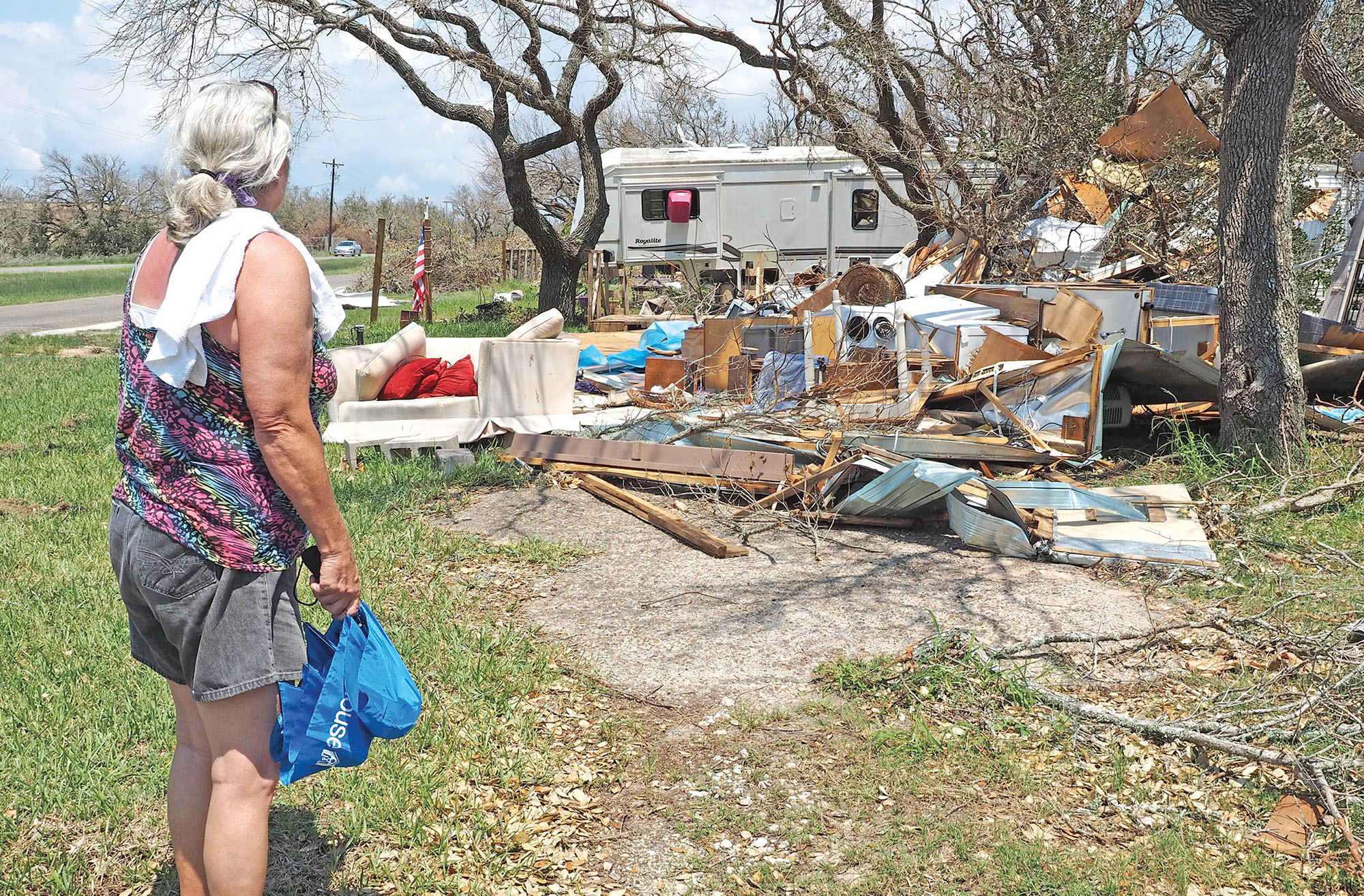
GRAPEVINE, Texas (BP)– As U.S. and international aid agencies pour resources into the Bahama Islands and eastern United States in the wake of Hurricane Dorian, some southeast Texas homeowners still await relief from the devastation wrought by Hurricane Harvey two years ago, according to Southern Baptists of Texas Convention pastors in the region.
 SBTC field ministry strategist Dennis Parrish and pastor Sonny Hathaway serve Southeast Texas communities where Harvey damaged or destroyed 738,000 homes and 25-30 SBC churches, and more than 30 pastors’ homes.
SBTC field ministry strategist Dennis Parrish and pastor Sonny Hathaway serve Southeast Texas communities where Harvey damaged or destroyed 738,000 homes and 25-30 SBC churches, and more than 30 pastors’ homes.
But despite recovery efforts by faith-based, private and government entities, some homeowners remain displaced or live in storm-damaged homes, the pastors said. And, according to an Aug. 23 Houston Chronicle report, residents await repairs despite the $2.5 billion U.S. Department of Housing and Urban Development recovery funds granted to Houston and Harris County.
Hope deferred?
“As I drive our community, I pass many homes still being rebuilt, RVs that are still temporary homes, and many mobile homes that have taken the place of lost or damaged houses,” said Hathaway, who is pastor of LaBelle Baptist Church in Beaumont. “I would say that recovery has come a long way but families and businesses in our area are still working to rebuild.”
About 80 percent of homeowners do not have flood insurance and must rely on Federal Emergency Management Administration grants to fund repairs — a resource that proves inadequate for some, Parrish said.
“The greatest hindrance has been, is, and will be governmental stagnation. The bureaucracy of any federal funding, in any program, is the hold up of distribution,” Parrish told the TEXAN. His field ministry area includes Harris, Montgomery, Fort Bend, Brazoria, Galveston and Liberty counties.
The government should not bear all the blame, Parrish said. After conferring with Southern Baptist associational mission strategists in his region, Parrish said some churches remain closed or are in disrepair due to litigation over insurance settlements and other church-specific reasons.
Some homeowners, Parrish noted, may have misused funds or taken advantage of free assistance while others take their insurance companies to court over compensation disputes. Others had their property condemned because it lies within a flood plain.
The empty lots remind residents of Harvey’s trespasses and mark boundaries future storms might cross.
“The emotional toll [Harvey] took on families, marriages, and senior adults was devastating in some cases,” Hathaway said. “Many have recovered and some did not.”
But Christian faith has been a key factor in recovery he said. Families who “lost everything” and could not afford repairs relied on their faith and “the Christian family” to sustain them, said Hathaway.
“I am finding that same story repeated as I talk to other pastors in our area,” he said.
Establishing a plan
Returning to a pre-Harvey status quo is not an option, the pastors said. SBTC churches must prepare to effectively respond before and after a natural disaster. Doing so could mitigate damage and expedite recovery efforts.
But when asked if a partnership between the government — with its billions of dollars in post-Harvey grants — and SBC disaster relief crews — with their skilled and ready volunteers — could happen in the recovery efforts, Parrish was hesitant.
“The political culture of this country and the red tape of bureaucracy will have to release the power grip on funding and provide faith-based and community-based entities the liberty to do what they have the potential to do,” said Parrish, pastor of The Church at 242, in Conroe.
But, in Hurricane Harvey’s receding waters, Hathaway may have discovered a potential partnership: Large corporations who poured “a lot of financial resources into our area” witnessed the effective work of faith-based aid organizations.
“There was trust that developed,” he said. “I think building relationships and partnerships with those agencies outside the church — for future work — could take place and could go a long way into getting financial assistance quicker.”
Parrish added, “The church must become a center of preparation and preparedness for our communities, with the Gospel at the center and the community as the concern.”
EDITOR’S NOTE: This story has been updated since it was originally posted.















